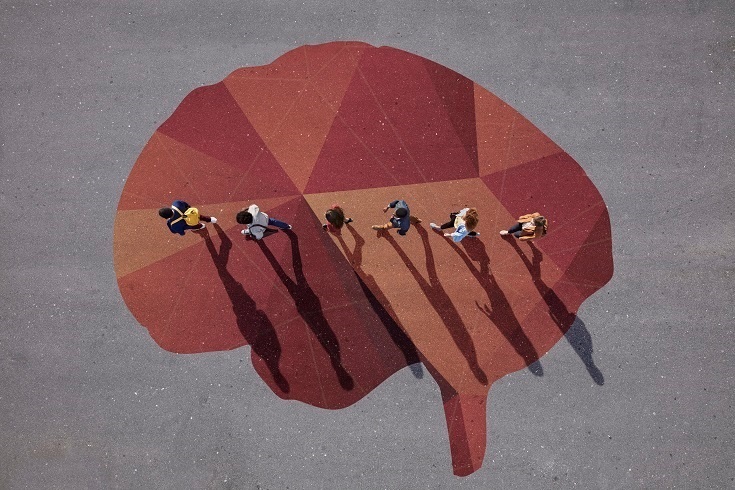
Most parents would never ignore their child’s broken bone or obvious signs of physical injury. Yet, when it comes to a child’s mental state, and someone tells you that your child has ADHD or needs medication, panic might set in.
You are not sure what all of it really means. However, you are told that without meds, your child is likely to make limited academic progress. So, where to from here?
You might be wondering:
- Should we use stimulant medications?
- Should we use long-acting medications (8 hours)?
- Should we use alternative prescription medication?
- Should meds be part of the solution at all?
All is not lost. Your child will be okay! There are many paths to follow, but having ADHD is definitely not the end of the child’s world.
However, if you take no action whatsoever, your child will likely battle more than they should at school and during their life.
Must see: Five ADHD myths that trivialise the true struggles the disorder presents
Taking action
The first port of call is to find a deep understanding of ADHD.
Well, it relates specifically to concentration and focus issues. The International Classification of Diseases 11th Revision (ICD-11) states that it is "a persistent pattern (at least 6 months) of inattention and/or hyperactivity-impulsivity that has a direct negative impact on academic, occupational or social functioning".
The ICD-11 further states that the onset of these symptoms occurs before age 12 years, typically by early- to mid-childhood.
One of the questions that are often asked is: Is there a correlation between intelligence and ADHD?
Research has shown that there is no major correlation between ADHD and intelligence, but children with ADHD are often more adventurous, more likely to be entrepreneurs, but they will battle with formal, long-term study environments.
Most adults work with their ADHD. Whether they know it or not, they are likely to choose jobs where they have freedom of movement and don’t always have to rely on a structured environment in order to succeed.
Symptoms
The actual symptoms as observed by a teacher in the classroom are:
- Inattention
- Non-completion of tasks in the allocated time
- Loss of focus
- General problems with concentration
- Self-focused behaviour
- Interrupting
- Problems with patience
- Emotional turmoil
- Fidgeting
- Problems playing quietly
- Avoidance of tasks
- Daydreaming
- Trouble getting organized
- Forgetfulness
Do we see these symptoms at home?
Most of the time, our children are playing or are involved in an activity they want to be involved in: gaming inside, playing a game outside or doing something relatively passive like watching TV or a series or something similar.
When we are able to observe our children attempting to complete a focused task like studying or homework tasks, that’s when we are likely to see some of the ADHD symptoms.
If there was anything positive about the complete lockdown we had in 2020, it was that we, as parents we got to see our children’s actual classroom behaviour.
If we were able to see their online behaviour, then we were extra lucky. In most instances, many parents had the opportunity to observe that their children battle to stay focused and/or complete a task, even though their teacher may have advised them of the situation before.
Also see: Is your daughter secretly struggling with ADHD? Here's how to know
What about medication?
Which meds should we use? From my years of experience, I have concluded that the possible side-effects discussed on the medication pamphlets are not always exactly the same for everyone. I believe that each child (person) reacts differently to medication in their systems, from absolutely no side-effects at all to other debilitating side-effects.
Still, my advice is to use whatever meds your Paediatric Neurologist or Paediatrician recommends but to stay in close contact with the medical professional. They need to know how your child reacts and how to alter and possibly prescribe something else if necessary.
Remember, medication is always a last resort, and when the time comes to use whatever medication the medical professionals prescribe for a better and healthier way forward.
Toolkit
A Parent Toolkit that could assist you along the way is as follows:
1. A formal assessment by a Paediatric Neurologist (if possible, otherwise a Paediatrician), including questionnaires for the child’s teacher, your input as a parent, and an assessment at some stage of the process by an Educational Psychologist.
2. Understanding that it is a neurological condition.
3. Creating structure, boundaries, and an appropriate environment for learning at school and home.
4. Correct school placement if possible (small classes and an understanding teacher).
5. Close liaison with the child’s teacher, medical professionals, and all therapists.
6. Medication if recommended by the child’s teachers and therapists and prescribed by a suitable medical professional.
Your child is exceptional and most likely will achieve great things throughout life. Your job as a parent now is to understand your child and assist wherever you can to help them on their journey to greatness.
Dr Greg Pienaar is the principal of the Bridge Assisted Learning School in Gauteng and holds a doctorate in Psychology. His work focuses on the school-going child in terms of therapy or play therapy in private practice.
Chatback:
Share your stories and questions with us via email at chatback@parent24.com. Anonymous contributions are welcome.
Don't miss a story!
For a weekly wrap of our latest parenting news and advice sign up to our free Parent24 newsletter.




 Publications
Publications
 Partners
Partners











